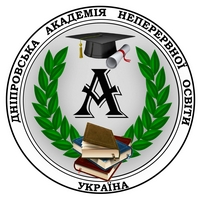ALAIN BADIOU'S ETHICAL CREDO IN THE CONTEXT OF POSTMODERN CULTURE
Abstract
The article attempts to reveal the main characteristic features and problematic points of A. Badiou's ethical doctrine as a cultural-historical phenomenon of the postmodern era. A systematic review of the role and place of ethics in modern philosophical discourse is introduced. The phenomenological and existential receptions of ethical dominants in the thinker's worldview are revealed. The philosopher's critical view on the problem of the subject of ethical relations is reflected. A. Badiou's attempt to construct a speculative model of an anti-universal system of values was noted. The attention is focused on the sensitive aspects of the epistemological potential of the philosopher's ethical credo. It is noted that the processes of ethical reflection are launched by French scientists on the conditions of abandoning the traditional expressions of the concept of «ethics» through the concepts of «man», «right», «other», which according to A. Badiou himself do not look appropriate and convenient due to their «speculativeness» (conjectural abstractness). The key aspects of the ethical and social modus operandi of a person in modern culture are analyzed. The fact of the narrowing of the ethical array due to the revision of the ontological foundations of classical European culture, a critical vision of I. Kant's ethical narratives is revealed. Attention is focused on the desire of the thinker to replace the fundamental ontological foundations of classical metaphysics with the idea of reproducing the uniqueness of the ontological situation. In contradiction to the sacred approach to universal ethical postulates, a secularized nihilistic essentially authorial postclassical project is proposed. This project reviews the main universals of culture (good, evil, existence, situation, subject, art, norm, and others). The author pays special attention to the outlined potential range of problematic issues of A. Badiou's ethical project, provoked by an anti-universal approach to the ethical norm: the erosion of the valuable classical axiological basis, methodological limitations in the analysis caused by post-structuralist attitudes. The author states that A. Badiou's ethical axioms are revealed by the thinker through their immanent nature, without relying on universal ethical grand narratives.
References
2. Бодріар Ж. Символічний обмін і смерть. Львів: Кальварія, 2004. 376 с.
3. Больнуа О. Що нового? Середньовіччя. Філософська думка. 2010. № 1. С. 114–136.
4. Воронюк О. Філософія сакрального. Київ: Видавництво «Марко Мельник», 2018. 256 с.
5. Гадамер Г. Прометей і трагедія культури. Герменевтика і поетика. Вибрані твори. Київ: Юнівер, 2001. С. 236–246.
6. Грабовський С. Соціокультурні норми у вимірах постмодерної доби. Університетська кафедра. Київ: КНЕУ, 2014. № 3. С. 7–26.
7. Лакс М. Метафізика: сучасний вступний курс. 2-е вид. Київ: Дух і літера. 2021. 608 с.
8. Халіков Р. Повстання проти секулярного світу. Київ: Видавництво Руслана Халікова, 2022. 186 с.
9. Хамітов Н. Статус моральної аргументації в класичних і сучасних філософсько-антропологічних уявленнях. Колізії антропологічного розмислу. Київ: Парапан, 2002. С. 108–122.
10. Ellen R. Theories in anthropology and «anthropological theory». Journal of The Royal Anthropological Institute (N. S.). 2008. Vol. 16. P. 387–404.

 ISSN
ISSN  ISSN
ISSN 

